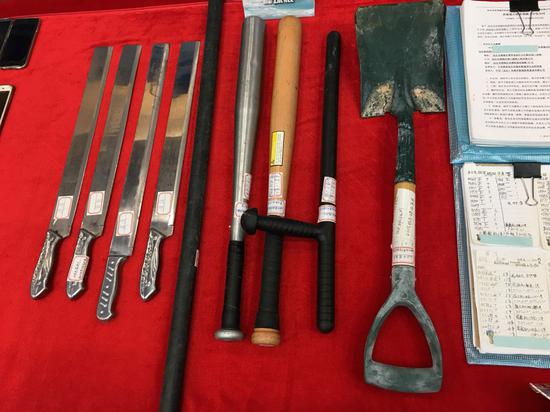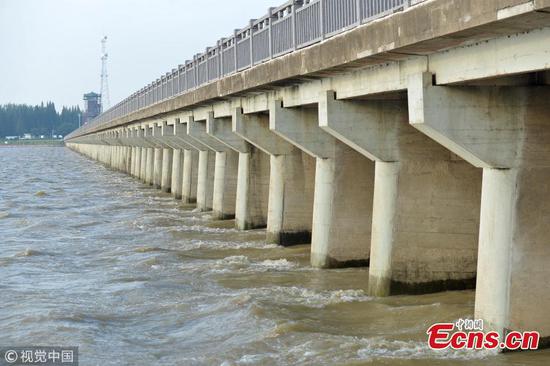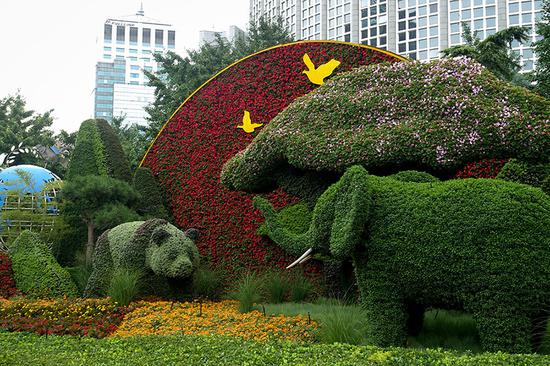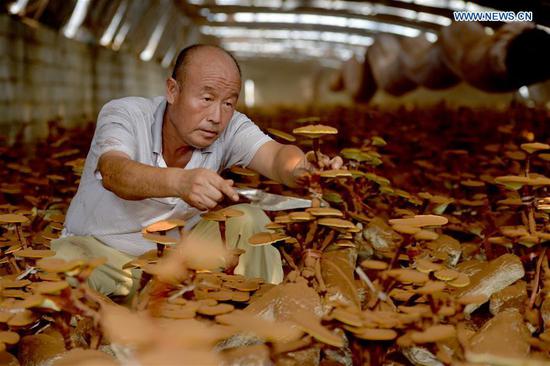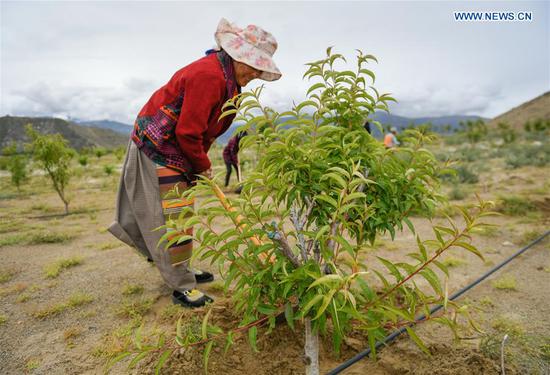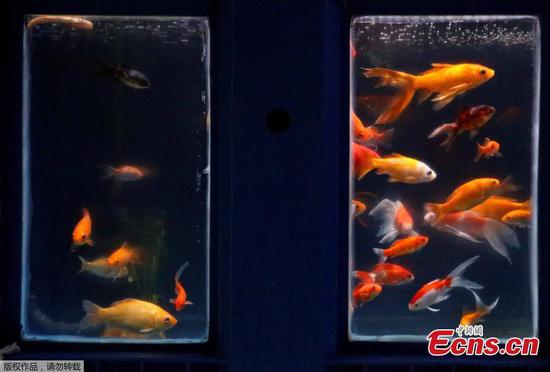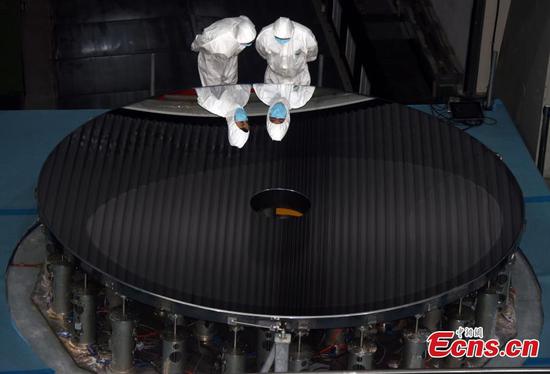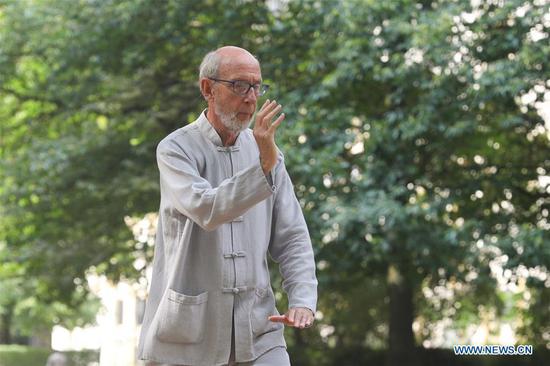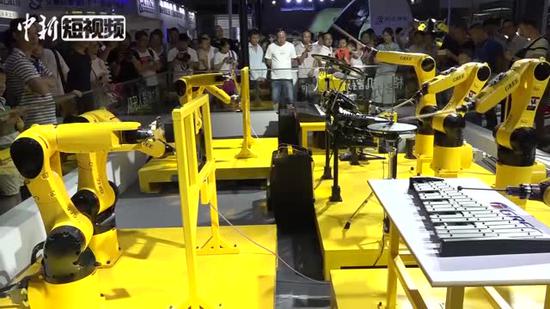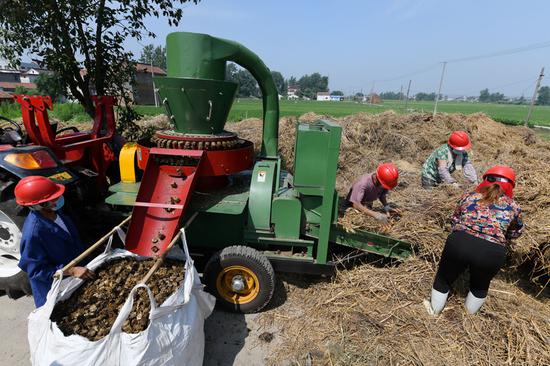
Workers make compressed fuel from waste straw in Nantong, Jiangsu province. (Photo/Xinhua)
In principle, most countries support biofuel technology, but financial incentives have become less clear as many nations shift their focus to electric vehicles.
Zhai said the development of biofuel and electric transportation technologies should be developed side-by-side.
"I think China sees this as an option, with researchers now working on second-generation biofuel technology which does not require food stocks being used in its production," he said.
"In China's case, it has a clear policy on reducing emissions and air pollution, and is serious in using and developing technologies in all areas, including biofuels and electric vehicles.
"What is less clear are the financial incentives provided to biofuels compared to electric vehicles. Ideally, the subsidies should be technology-neutral, given that both biofuels and electric vehicles can meet similar policy purposes."
Last year, global biofuel production grew by just 2 percent (140 billion liters), while average production growth of about 3 percent a year is anticipated over the next five years, according to the IEA.
Overall, however, conventional transportation fuels remain dominant in Asia despite advances in biofuel technology in some countries such as China and Japan.
Clarence Woo, executive director of the Asian Clean Fuels Association in Singapore, said biofuels in Asia have had a positive impact on reducing pollution.
"Within the framework of biofuels implementation, there are numerous issues that need to be looked at to ensure the benefits are derived holistically," he said.
Over the past 15 years, the association has been working with governments across Asia to help plan and evaluate their biofuels programs.
In September, China, for the first time, set 2020 as a target to roll out the use of ethanol in gasoline for cars nationwide as part of efforts to clean up pollution and optimize the country's energy mix.
According to a joint release by the National Development and Reform Commission, the National Energy Administration and the Ministry of Finance, the country will implement the plan while targeting the large-scale production of cellulose ethanol and advanced biofuel technologies by 2025.
This is the first time the government has set a timeline for promoting E10.
Analysts say government support has greatly boosted confidence in the sector. China is the world's third-largest bioethanol producer and uses nearly 2.6 million metric tons a year.
Gasoline blended with ethanol (grain-based alcohol) accounts for one-fifth of China's annual gasoline consumption. The country launched corn-to-ethanol pilot programs in 2004 as part of efforts to cut emissions and advance new energy.
Earlier this year, India announced a new policy to promote biofuels as part of efforts by the world's third-largest emitter of greenhouse gases to cut imports of fossil fuels such as oil, gas and coal.














